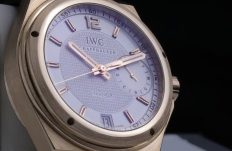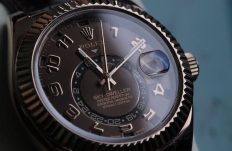Jewellery are some of the most prized items that can be recovered from archaeological sites. In part, this is because jewellery tends to be made using rare and precious materials such as gold and gemstones. However, it is important to note that jewellery can also provide a wealth of information about the people who wore them because jewellery reflects prevailing tastes of its time and place, meaning that it cannot be separated from the culture that produced it.
Here are some examples of how jewellery designs changed over time:
Sumeria
Situated between the Tigris and the Euphrates, Sumeria was the first but not the last of the great civilizations to rise in the land that would become known as Mesopotamia. Like their successors, the Sumerians searched for precious materials, ranging from gold, gemstones and Lapis Lazuli.
These materials were fashioned into types of jewellery that are still common in modern societies. Examples range from rings, bracelets, amulets, medallions and multi-stranded necklaces that were made to resemble leaves, flowers and other shapes that can be found in nature.
Imperial Rome
The earliest Romans were an austere lot that frowned upon the use of gold for jewellery; however, that began to change once Greece came under Roman rule. It was not until later that Roman jewellery began to take on a style of its own, albeit still influenced by the cultures with which they came into contact.
For example, the excavations of Pompeii and Herculaneum told us much about Roman jewellery of the early Principate. Golden rings, earrings and necklaces were set using a wide range of gemstones that showed the remarkable reach of Rome.
Renaissance
Renaissance jewellery drew inspiration from classical times, as well as their medieval predecessors, not so much in style but as in theme. As a result, Renaissance jewellery saw extensive use of relief and other methods that could be used to show scenes out of famous stories. Something that became possible because of increasing specialization among jewelers.
Pendants suspended on gold chains were popular, as were rings and pomanders made using the same materials. It is interesting to note that the people of the time also loved smaller but no less noticeable pieces of jewellery that could be attached to their garments.
Victorian Age
Some of the most popular concepts of modern jewellery started in the Victorian Age. For example, diamond engagement rings become popular when diamonds were found in South Africa, though their use was limited to the upper classes until later
Since romanticism was popular at the time, it should come as no surprise that the Victorians loved natural motifs such as berries, branches, flowers, leaves and even animals. The start of the Industrial Revolution introduced new possibilities to Victorian jewelry, which started to use once-impossible methods such as electroplating.
Modern Times
Jewellery design in modern times is interesting in that it can be so varied in nature. Ease of communication means that modern jewelers can draw inspiration from people all around the world, producing results that are both new and exciting. However, time-tested favorites remain popular, meaning that nothing is lost even as jewellery design continues to change. For example, following the First World War, fashion revolved around rubies, pearls and gold jewellery that was influenced by Egypt, Africa and other historic cultures and themes.
Contact Pinto Gold for jewellery appraisal services, or to sell your gold, silver and diamonds. For our customers’ convenience, our Midtown Toronto location is easily accessible via TTC at the intersection of Yonge.








